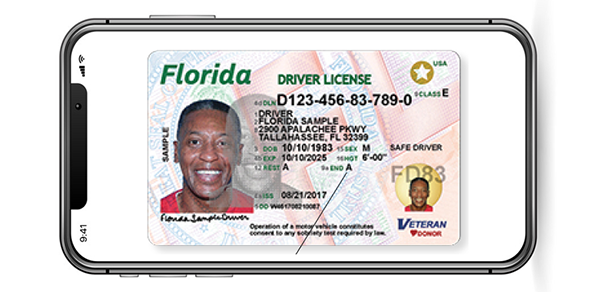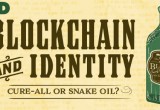Florida digital driver’s license could get legislative consideration
06 February, 2019
category: Digital ID, Government, Transit
A Florida digital driver’s license could join the list of mobile credentials issued by other pioneering states — if a bill before state lawmakers makes it way to approval this spring.
State Rep. James Grant, a Republican from Tampa, reportedly will sponsor the bill during Florida’s upcoming legislative session. It would essentially legalize the use of digital IDs – or mobile driver’s licenses – in such situations as traffic stops and the purchase of alcoholic beverages. That would make Florida part of a larger digital ID and digital driver’s license trend.
Last year, Louisiana became the first state to rollout digital driver’s licenses — and Florida might replicate parts of that effort
“The idea isn’t to replace traditional licenses but to supplement them,” says the report. “If adopted, driver’s licenses could be treated similarly to auto insurance cards.”
Florida digital driver’s license on a smartphone
The proposed legislation, Florida House Bill 1357, would essentially allow Florida residents to show their driver’s licenses via their smartphones instead of pulling a physical document out of their wallets, purses or pockets. The prospects for passage are unclear.
But while Florida would certainly be an early adopter of those digital IDs, it would not be the first to deploy them.
Last year, Louisiana became the first state to rollout a digital driver’s license. The LA Wallet app is available on iOS and Android platforms for a $5.99 fee that covers use of the app until the physical license’s expiration date. At that point, a new fee will be assessed to continue using the mobile version. According to the American Association of Motor Vehicle Administrators, at least a dozen other states are either testing such a digital driver’s license program or considering it.
Florida digital driver’s license and blockchain
The bill that Rep. Grant is expected to sponsor in Florida in the coming weeks also has another goal: The acceptance of blockchain technology to be as legally binding as other forms of electronic signatures and records. According to the bill, “a record or contract that is secured through blockchain technology is an electronic form and is an electronic record.”
As in the case in Louisiana, the bill addresses concerns about privacy and about law enforcement violating Fourth Amendment protections against unreasonable search and seizures. The bill says that a digital driver’s license must be “in a format that allows law enforcement to verify the authenticity,” and that “displaying a digital proof of driver license does not constitute consent for a law enforcement officer to access any other information on such device.” The rollout in Louisiana offers an idea of what would mean in practice. Police there do not physically take possession of the smartphone from the person displaying the digital driver’s license.
According to reports, the digital driver’s license and blockchain bill in Florida also might be tied to another legislative effort “to create a database enabling police to access drivers’ real-time auto insurance status,” says the report.




